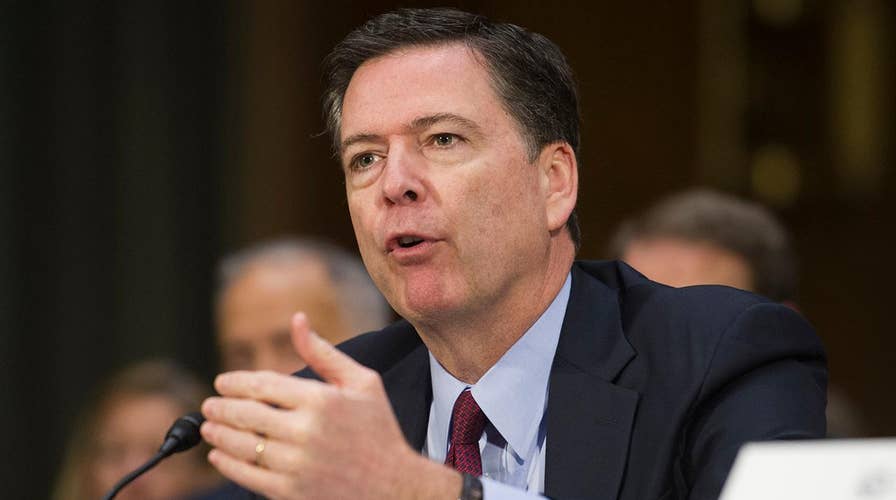IG Report: Comey broke protocol
Comey's decisions had a fateful impact on the 2016 campaign; Catherine Herridge reports from the Justice Department.
Former FBI Director James Comey used a personal email account to "conduct unclassified FBI business," the Justice Department's watchdog revealed in an explosive report on the bureau's conduct in the Hillary Clinton email investigation.
DOJ Inspector General Michael Horowitz wrote that he found Comey's use of personal email to be "inconsistent with Department policy," citing what he called "the absence of exigent circumstances and the frequency with which the use of personal email occurred."
Horowitz also revealed that FBI agent Peter Strzok used his personal email account for government business. Most notably, Horowitz wrote that Strzok forwarded an email to his personal account regarding a proposed search warrant for former Congressman Anthony Weiner's laptop computer. Horowitz wrote that the email on Strzok's personal account contained information "that appears to have been under seal at the time" in federal court.
Strzok was removed from Special Counsel Robert Mueller's Russia investigation last year after Horowitz's office discovered anti-Trump text messages between him and FBI lawyer Lisa Page.
Horowitz's revelations are an ironic footnote to the Clinton investigation, which began with the revelation that the 2016 Democratic presidential nominee had used a personal email address to conduct official correspondence while secretary of state. On July 5, 2016, Comey announced that no charges would be filed against Clinton but noted that Clinton and her aides had been "extremely careless in their handling of very sensitive, highly classified information."
Comey did not address his use of a personal email account in a New York Times op-ed responding to the Horowitz report.
"I do not agree with all of the inspector general’s conclusions, but I respect the work of his office and salute its professionalism," he wrote. Later in the piece, Comey described the Clinton investigation as "an extraordinary situation — something I thought of as a 500-year flood — offering no good choices and presenting some of the hardest decisions I ever had to make ... But even in hindsight I think we chose the course most consistent with institutional values."
























